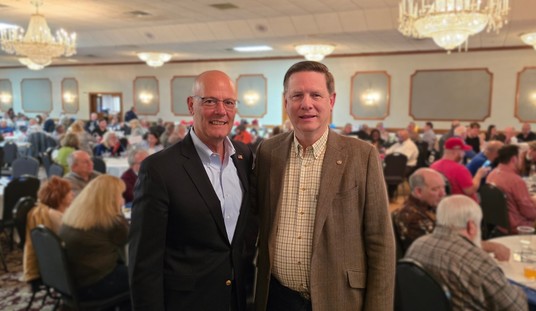The following column is authored by Dr. Dennis Petrocelli, a clinical and forensic psychiatrist in Virginia.
Gun control advocates pretend that if red flag laws were universally in place, mass murderers would be stopped before they killed, and that without these laws, killers will continue to fall through the cracks in the criminal justice and mental health treatment systems (1). Nothing could be further from the truth.
Court testimony about risk must use methods that meet standards that include a known error rate, review and approval of their peers, and wide acceptance (2). No such scientific method exists for predicting mass murder because experts disagree about the best way to assess risk. Definitive proclamations of dangerousness are frowned upon because they aren’t supported by science. Without acceptable professional standards, and because the bills don’t require the subject’s behavior to match any specific description of risky behavior, we have a prescription for a gun-grab free-for-all. Although The National Threat Assessment Center identified several risk factors that suggest increased risk, the number of people encompassed by that profile is vast and clearly includes huge numbers of people who would not go on harm anyone (3).
A version of this type of law has existed in Connecticut since the late nineties, but research on its use hasn’t shown that it prevented mass homicide (4). The RAND Corporation examined thirteen types of gun control laws across the nation in 2018 and didn’t find any that had compellingly reduced homicide (5).
Here’s what we see where these laws are used: the first ten subjects of gun violence restraining orders served by the San Diego City Attorney’s Office could either have been committed under existing mental health law or charged with a crime that would have allowed for a firearms prohibition (6). Clearly, this shows that there isn’t a need for a new law trampling law-abiding citizens’ rights.
Instead of giving up rights, everyone needs to take responsibility for their safety and the safety of others: learn how to access emergency mental health evaluations (7). That evaluation can decide if someone’s “concerning behavior” requires more scrutiny. Threatening and violent behavior, with or without firearms, is criminal behavior, and is best handled by the criminal justice system. Finally, the elimination of gun-free zones and barriers to the trained concealed carrying of firearms would go a long way towards making would-be killers think twice and empower people to take responsibility for their defense.
Dennis Petrocelli, MD is a clinical and forensic psychiatrist who has practiced for nearly 20 years in Virginia. He took up firearms in early 2019 as a mind-body training discipline and for self-defense, just in time to engage in advocacy at Governor Northam’s gun-control forums and the Special Session of the General Assembly.
References:
(1) Marco Rubio’s tweet: https://twitter.com/
(2) Daubert Standard: https://www.law.cornell.edu/
(3) National Threat Assessment Center’s Mass Attacks in Public Spaces: https://www.secretservice.gov/
(4) RAND Corporation’s Gun Policy Analysis: https://www.rand.org/research/
(6) San Diego City Attorney’s Office: https://www.sandiego.gov/
(7) Treatment Advocacy Center: Know the Laws in Your State: https://www.








Join the conversation as a VIP Member